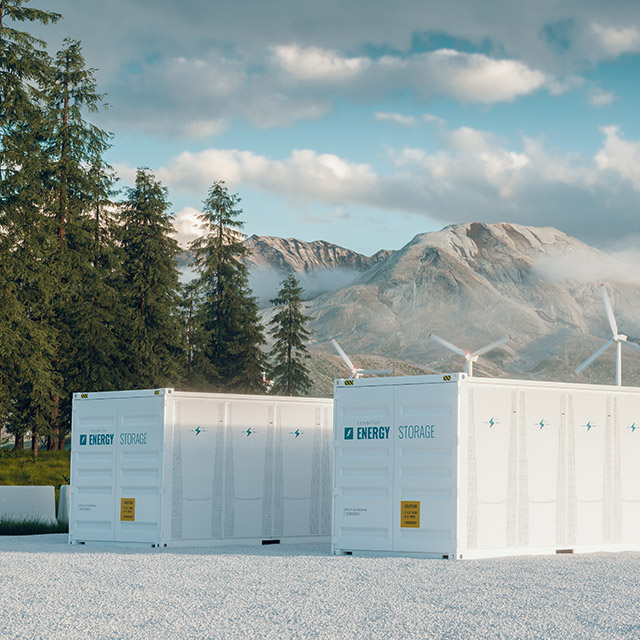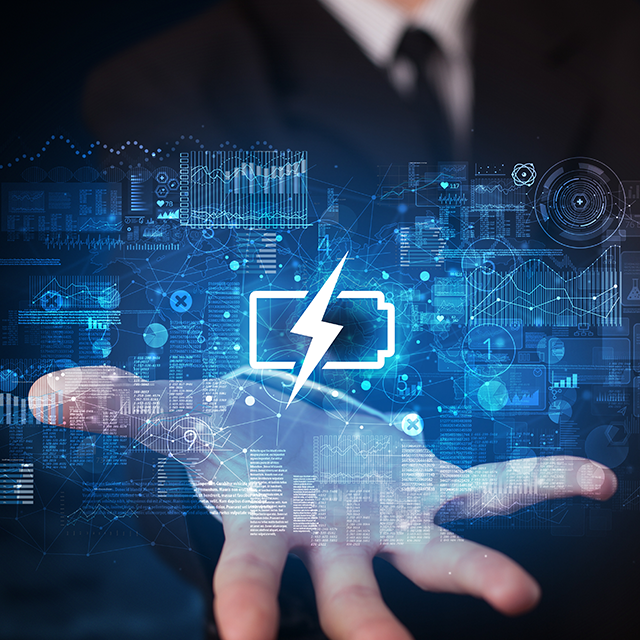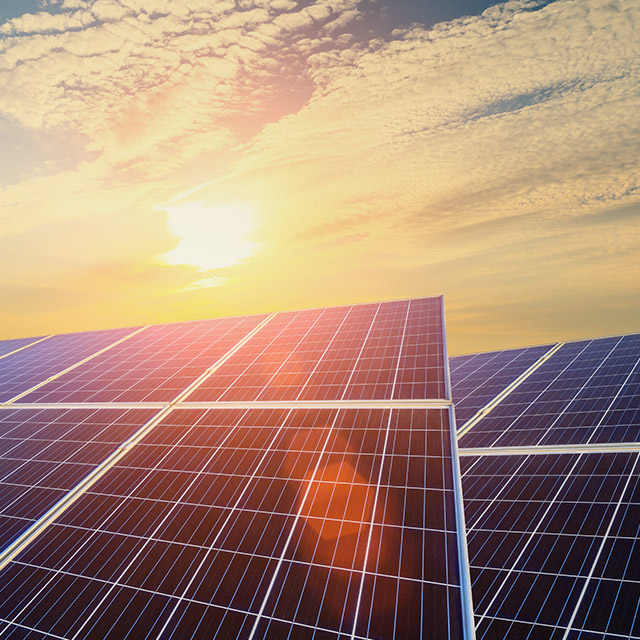Battery Energy Storage System: What Is It and How Does It Work?
Overviews
- What is a Battery Energy Storage System?
- Why are BESS facilities important?
- How does a Battery Energy Storage System work?
- Battery Energy Storage System applications
- Introducing FSP’s Battery Energy Storage System
- The final word on Battery Energy Storage Systems
As the collective bid to support the use of renewable power sources continues to evolve, the Battery Energy Storage System (BESS) has emerged as one of the most important technologies of all. The devices are now widely used in both residential and commercial settings, raising the bar of possibility in the renewable power arena.
Before introducing a Battery Energy Storage System to your building, though, it’s important to educate yourself on their functions, features, and capabilities. This quick guide from FSP will answer all of your key questions, including but not limited to;
- What is a Battery Energy Storage System?
- How does a BESS work?
- What are the various applications of a BESS?
- What are the benefits of a Battery Energy Storage System?
- Which BESS products are best?
What is a Battery Energy Storage System?
As per LawInsider, a BESS is an “electric storage resource capable of receiving electric energy from the grid or other electric resource and storing it for later injection of electric energy back to the grid”. In relation to renewable energy, the systems are capable of storing solar or wind-generated power so that it can be utilized at a later date.
Battery Energy Storage Systems may consist of batteries, chargers, controls, power conditioning systems, and associated accessories.
The BESS market is worth an estimated $1.3bn in the U.S. but is growing with a CAGR of over 26%. The role of Battery Energy Storage Systems will continue to play an integral role as societies shift away from the reliance on fossil fuels, not least due to their ability to facilitate continual power supplies for businesses, homes, and utilities alike.
Lithium-ion batteries, much like those used in cell phones, remain the dominant resource. Developments for larger-scale applications have already seen them become an integral feature in powering electric cars and BESSs are now also capable of powering houses and large commercial buildings.
Why are BESS facilities important?
The benefits of BESS technologies are both plentiful and clear. They feed into the Global Green renewable energy projects as the driving force behind major improvements at the community and end-user levels alike. Thanks to scalable opportunities, Battery Energy Storage System networks are certain to be the catalyst for sustained success in a new era of energy consumption.
As populations grow and connectivity increases, the demand for energy soars. This has consequently caused severe damage to the environment but the transition towards renewable energy can help solve the issues regarding supply and demand, as well as slow the environmental damage.
The aim of BESS networks is to remove the need for fossil fuel plants and replace their backup power supplies with energy that has been stored from wind, solar, and hydro technologies. The benefits of widespread integrations of Battery Energy Storage Systems include but are not limited to;
- Support local, national, and global commitments to reach a Net Zero status for carbon production.
- Promote a continuous flow of renewable energy by utilizing power reserves when the natural energy sources experience a dip.
- Save money by using stored energy during peak times when energy rates are more expensive.
- Gain further financial and environmental benefits by selling excess power resources back to the power grid.
- Provide a reliable backup source of energy that does not rely on the grid as the supplies are held in the batteries.
A Battery Energy Storage System combats a range of practical solutions to many of the problems surrounding renewable technologies and ultimately unlocks the full potential of natural energy supplies. Its implementation for operational and reliability-based benefits is nothing short of incredible.
On a national and international scale, then, the adoption of BESS technologies is vital for protecting the environment and relieving the stress caused by growing demands for energy. For businesses and homeowners, however, the green living benefits are further supported by financial rewards. At times where political situations could jeopardize traditional energy supplies, having a Battery Energy Storage System in place can deliver peace of mind too.
How does a Battery Energy Storage System work?
The fundamental features of Battery Energy Storage Systems are fairly straightforward. The rechargeable lithium-ion batteries are used to receive and store energy before subsequently transferring this energy to power a range of products in the appropriate situations.
If looking at BESS facilities for solar energy as an example, the process is as follows;
- Solar panels generate renewable energy.
- They transfer the necessary power to whatever appliances require it.
- Any excess energy will be sent to the BESS batteries to be stored.
- When solar energy is not created (at night, for example) the stored energy is used.
- The process is then repeated in an automated fashion as required.
While understanding the basics of how BESS facilities work, the technology used is very advanced. Both domestic and large-scale commercial equipment work on the same principles. They utilize automated battery algorithms to manage energy production, as well as intelligent control systems to determine how the stored energy is used.
Modern systems and control systems will use the stored energy during peak times when electricity costs are at their highest. This is particularly important as most buildings will still require power from the grid for some of the time as they are not 100% self-sufficient through renewables. When the batteries are at full capacity, advanced BESS equipment can divert and sell excess renewable energy back to the grid.
As well as featuring advanced energy management systems that use real-time analytics to determine the right charge and discharge cycles, a Battery Energy Storage System will use an inverter to convert the DC energy produced by renewable energy equipment into the AC power supplies needed to deliver electricity to the intended applications.
Battery Energy Storage System applications
Many people naturally think about battery energy storage as a safety net for when blackouts occur, which can serve many benefits for businesses and homes. However, the use of BESS facilities can extend to a host of other applications. For residential users, it is an opportunity to implement the best renewable energy management system or even adapt to off-grid living.
The possibilities for businesses and industrial applications include;
- Peak shaving, which prevents the threat of short-term energy consumption spikes.
- Disconnection from the grid in any situation where it is required.
- Guarantee smooth transitions when renewable sources are/aren’t available
- Use load shifting to focus on stored energy consumption when the costs are higher.
- Embrace Demand Response programs to save money and achieve greener habits.
Introducing FSP’s Battery Energy Storage System
The role of BESS facilities in the pursuit of smarter energy consumption - practically, financially, and environmentally - is remarkable. Nevertheless, the success of its implementation can be heavily attributed to the choice of equipment.
While large-scale industrial plants often need bespoke systems to meet their specific energy consumption requirements, residential usage is far easier to predict. FSP has two phenomenal systems that can transform the home’s energy consumption to deliver all of the benefits above.
Hybrid Energy Storage System
The ESS 510 model is a 5.5KW hybrid inverter and 5KW lithium-ion battery unit that provides an all-in-one home hybrid ESS solution that connects to PV array equipment to convert DC energy into AC energy, which can subsequently be sent directly to home appliances or back to the grid.
Its battery capacity of 5,120WH ensures that you can store more than enough power to see you through a blackout or power home appliances when solar power cannot be generated. Crucially, it features scalable battery expansion opportunities that enable you to adapt the system to meet personal household requirements.
Compact physical dimensions mean that the units do not impact the home’s interior design while it should be noted that it can be programmed to offer grid-tie, off-grid, or grid-tie with backup solutions. Real-time monitoring and multiple connectivity options, along with user-adjustable battery charging, ensure that users can tailor the solution to their requirements.
Off-grid Energy Storage System
The ESS 810 model features a 5KW lithium-ion battery alongside a 8kw an off-grid inverter to store and manage even more energy. Despite having the same compact dimensions, the BESS output is boosted from 5500W to 8000W while the maximum AC current charge is three times larger at 120A.
ESS 510 and ESS 810 models can use the Wi-Fi monitoring and USB On The Go features for greater control while the compatibility with utility mains and generator input, along with selectable high-power charging currents, deliver optimal versatility. Input voltage ranges can also be selected for greater control for household users.
Configurable AC/PV output usage timer and prioritization add to the capabilities of the scalable system while transfer times of under 20ms highlight how smooth the transitions from grid energy, current solar-powered energy, and battery stored energy can be. As with the ESS products , operation status display bars and 5” LCDs provide incredible clarity while the conversions from DC to AC currents are fully automated.
The final word on Battery Energy Storage Systems
Whether you manage a business or a home, the switch to renewable energy is essential. To make the power supplies more affordable and reliable, the addition of a Battery Energy Storage System should be at the top of your agenda.
Call FSP today for a full consultation on which unit will be best for your household needs. The road to a net zero future starts now.
| FSP Smart Microgrids Microsite |
Related Articles
About FSP
FSP Group is one of the global leading power supply manufacturer. Since 1993, FSP Group has followed the management conception “service, profession, and innovation” to fulfill its responsibilities as a green energy resolution supplier.





